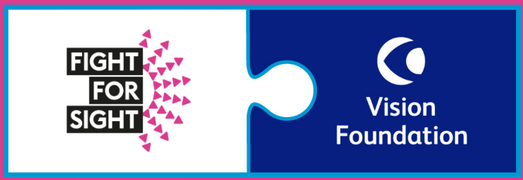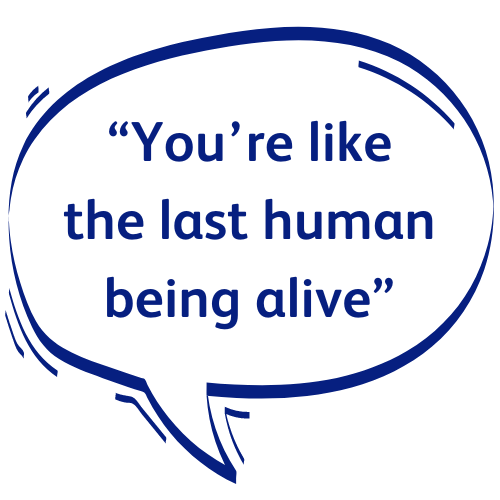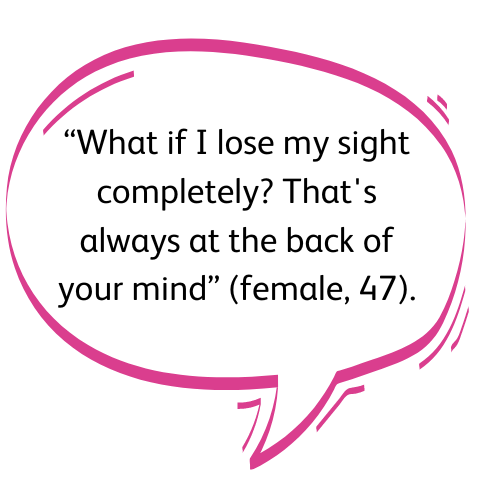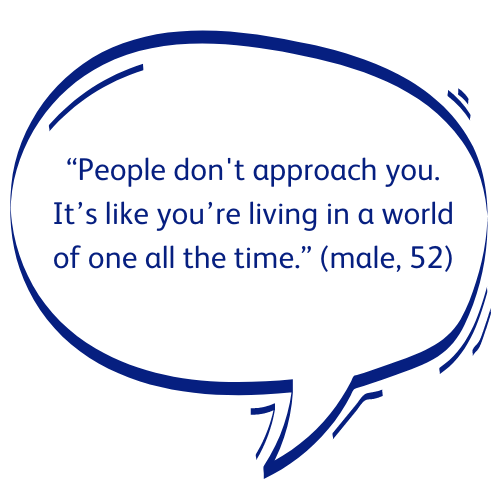
Outside
Our latest report explores how people who are blind and vision impaired experience loneliness and isolation.
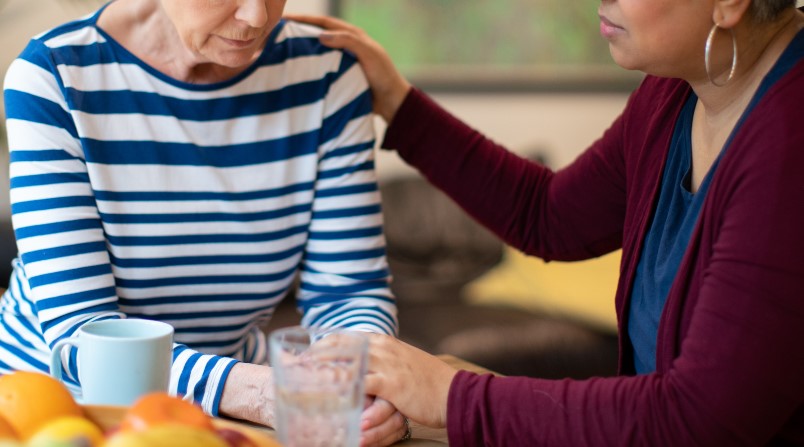
Report: People who are blind and vision impaired are three times more likely to experience loneliness and isolation.
This is the finding of a report funded by us and conducted by researchers from Abertay University. Our report reveals the negative impact on mental health: researchers discovered high levels of anxiety and depression.
Insights into loneliness and isolation for blind and vision impaired people. PDF
-
76% of survey respondents said they felt lonely some or all of the time.
-
25% of the general population feel lonely some or all of the time.
-
44%of interviewees scored an 8 or a 9 on the loneliness scale.
-
26% of survey respondents said they felt lonely some or all the time.
Download and read the report
This report identifies areas where we can and will invest in change. We identify the need for:
Emotional support
A more holistic, consistent approach to emotional support at the point of diagnosis.
Opportunities for connection
Renewed efforts to ensure that vision impaired people can connect with others and have access to tools and resources to gain confidence and mitigate the risks of internalising real and perceived stigma about what it means to be vision impaired.
Preparation for national events
A better appreciation of how life events, including national events like pandemics and lockdowns, might be made harder for someone with vision loss.
Access
Creative, flexible and practical ways for vision impaired people to get out and about, even whilst real external and internal barriers exist.
Training and guidance
New and sustainable solutions that make it easier for people to build confidence, resilience and social and practical skills for handling the everyday difficulties of blindness or vision impairment, including digital skills.
Data capture
More granular data that specifically focuses on blind and vision impaired people, along with a deeper understanding of the ways that different identities and aspects of intersectionality impact how blind and vision impaired people experience loneliness and isolation.
